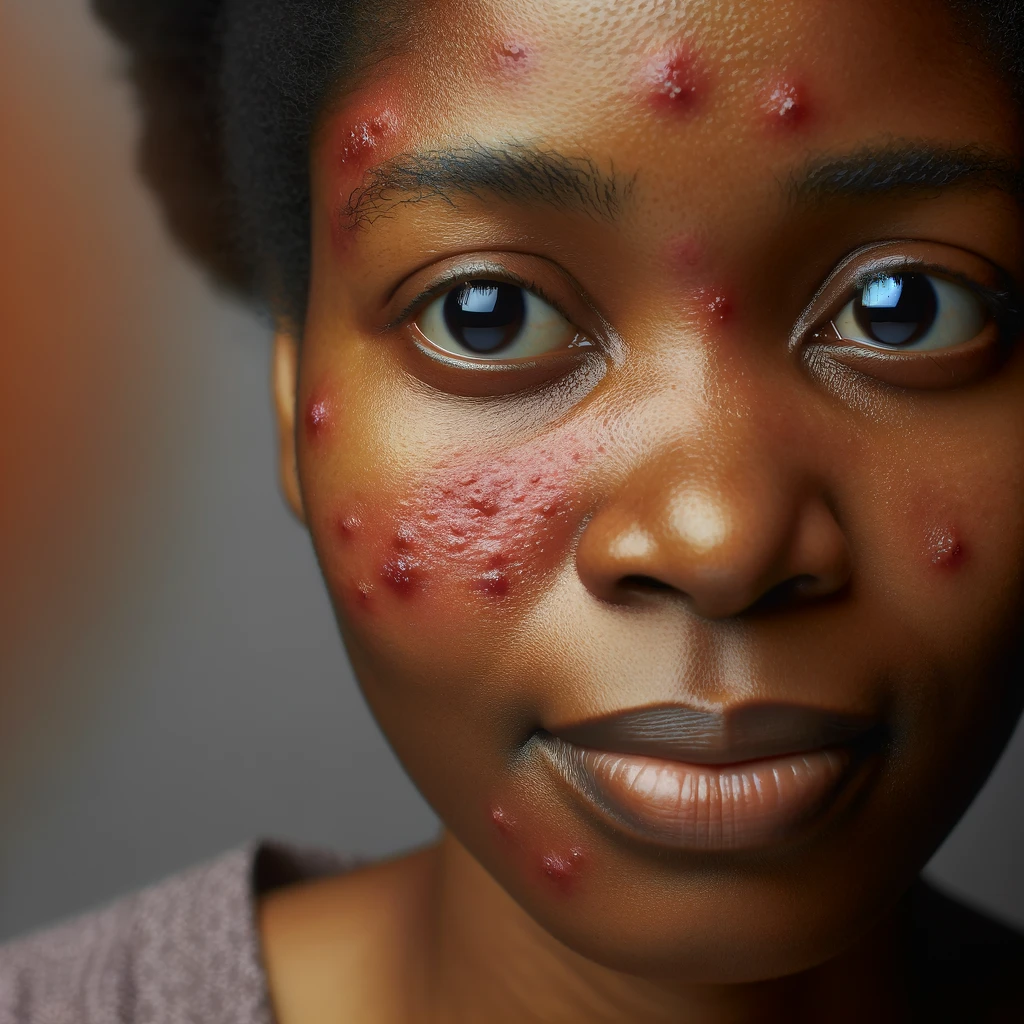Hormonal acne is a common skin condition that occurs due to fluctuations in hormone levels, particularly androgens such as testosterone. This type of acne is often characterized by deep, cystic breakouts primarily along the jawline, chin, and cheeks. Hormonal acne can be persistent and frustrating, but with the right approach, it can be managed effectively. In this article, we’ll explore the causes of hormonal acne and discuss proven strategies and treatments to help clear and prevent breakouts.
Causes of Hormonal Acne
Hormonal acne is influenced by hormonal fluctuations that stimulate excess oil production in the skin’s sebaceous glands. Common causes and triggers of hormonal acne include:
1. Puberty: Hormonal changes during puberty can lead to increased androgen production, resulting in acne breakouts.
2. Menstrual Cycle: Fluctuations in hormone levels throughout the menstrual cycle can trigger hormonal acne in women, typically occurring before or during menstruation (known as menstrual acne).
3. Polycystic Ovary Syndrome (PCOS): Women with PCOS often experience hormonal imbalances, including elevated androgen levels, which can contribute to acne.
4. Stress: Chronic stress can stimulate the release of hormones like cortisol, which in turn can exacerbate hormonal acne.
5. Pregnancy: Hormonal changes during pregnancy can lead to acne breakouts, particularly in the first trimester.
6. Hormonal Medications: Certain medications containing hormones, such as oral contraceptives or hormone replacement therapy, can affect hormone levels and potentially trigger acne.
Effective Strategies to Treat Hormonal Acne
While hormonal acne can be challenging to treat, several strategies and treatments can help manage breakouts and prevent future flare-ups:
1. Topical Treatments
- Skincare Products such as PoshGlow’s Acne Soap, Acne Cream and Acne Scrub are specially formulated to target acne by reducing and normalising the production of sebum, preventing clogging and reducing inflammation.
- Retinoids: Prescription or over-the-counter retinoid creams can help regulate skin cell turnover, prevent clogged pores, and reduce inflammation associated with hormonal acne.
- Benzoyl Peroxide: This topical medication helps kill acne-causing bacteria and reduce excess oil production.
- Salicylic Acid: A beta hydroxy acid (BHA) that exfoliates the skin, unclogs pores and reduces inflammation.
2. Oral Medications
- Combined Oral Contraceptives: Certain birth control pills containing estrogen and progestin can help regulate hormone levels and reduce hormonal acne in women.
- Anti-Androgen Medications: Drugs like spironolactone can block the effects of androgens on the skin and reduce oil production, leading to fewer breakouts.
3. Lifestyle Changes:
- Manage Stress: Practice stress-reducing techniques such as meditation, yoga, or deep breathing exercises to help balance hormone levels.
- Maintain a Healthy Diet: Limit dairy and high-glycemic foods, which can contribute to hormonal fluctuations and acne. Focus on a balanced diet rich in fruits, vegetables, and whole grains.
- Avoid Overwashing: Wash your face gently twice a day with a mild cleanser to remove excess oil and dirt without stripping the skin’s natural moisture barrier.
4. Professional Treatments:
- Chemical Peels: Dermatologists can perform chemical peels to exfoliate the skin, unclog pores, and promote cell turnover.
- Laser Therapy: Certain laser treatments can target acne-causing bacteria and reduce inflammation associated with hormonal acne.
Preventive Measures for Hormonal Acne
In addition to treatment, adopting preventive measures can help minimize the impact of hormonal acne:
- Consistent Skincare Routine: Use non-comedogenic skincare products and avoid excessive touching or picking of the skin.
- Regular Dermatologist Visits: Schedule regular check-ups with a dermatologist to monitor acne and adjust treatment as needed.
- Hormonal Balance: Work with a healthcare provider to address underlying hormonal imbalances through medication or lifestyle modifications.
In conclusion, hormonal acne can be a persistent and frustrating condition, but it can be managed with a combination of topical treatments, oral medications, lifestyle changes, and professional interventions. By understanding the causes of hormonal acne and adopting targeted strategies, you can achieve clearer, healthier skin and regain your confidence. Remember to be patient and consistent with your skincare regimen, and consult a dermatologist for personalized guidance and support along the way.

